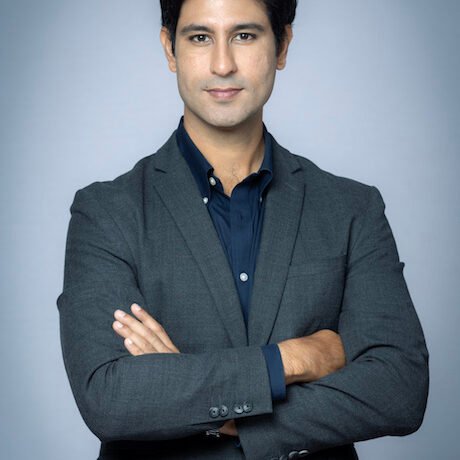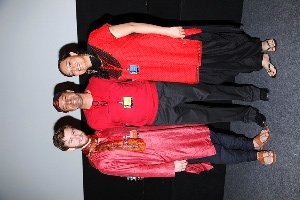KASHISH 2012 – Day 2 – Bollywood Beats rocks with Sarita Joshi
KASHISH 2012 continued its tradition of a `girls-day out’ in its third year with a package of short and feature films for the LBTI community. The popular `Girl Shorts’ package was followed by the screening of the acclaimed movie The OWLs on Day Two of the 3rd Kashish Mumbai International Queer Film Fest.
Bollywood Beats – a 2009 desi film with a gay subplot proved to be the surprise package on Thursday, with an enthusuatic crowd and television and stage actor Sarita Joshi, who stars in the movie, in attendance. Theatre actor Lillete Dubey played a crucial role in the movie, with the director Mehul Shah playing the role of a young gay man. Sarita Joshi, accepted the catcalls and whistles for her turn as a dancing grandma. “This is a two year old movie and when I was approached for it I didn’t hesitate to say yes. The experience was wonderful and the gay theme was handled very beautiful. The movie send out a message that the LGBT persons are a part of the society and have to be accepted into the mainstream,’’ said Sarita Joshi.
Earlier in the day, a panel discussion was held at Cinemax – Playing Safe: Talking about Safe Sex, HIV/AIDS through popular media. The panellists included gay activist and Humsafar Trust co founder Ashok Row Kavi, Manavendra Singh Gohil, the prince of Rajpipla, Roy Wadia of Heroes Project, Nitin Dwivedi of DKT India, transgender activist Abheena Aher and researcher Alpana Dange. The panel discussed whether the emphasis on safe sex has been forgotten, especially in the queer community and if the representation of safe sex practices and HIV/AIDS in popular media was adequate. The session was moderated by co festival director Pallav Patankar.
Ashok Row Kavi spoke about the current scenario of HIV in India in context with the MSM and TG community. “The all-India picture is bad. As of 2009 the rate of HIV prevalence was 7.4% among men who have sex with men (MSM) community. No state in India has a prevalence rate of less than 10%. That means 1 in 10 people that you see from the MSM community are either positive or are unaware of their status. People are unaccepting and say that it only exists in the lower socio economic strata. But HIV knows no such barriers and we need to accept it and take charge of the situation,’’ said Row Kavi. Alpana Dange admitted that a sense of fatigue related to HIV awareness messages seemed to have set in. Roy said that while the government tries to do a lot of work in terms of sensitisation, they shy away from spelling out the actual thing. “People have a lot of awareness about condoms but actually most of them do not even know how to wear them correctly,’’ said Roy pointing out that Heroes Project had manuals handed out to people with sometimes explicit details. Abheen Aher attributed some of the blame of the high prevalance of HIV in the transgender community and the lack of measures to address it on the inherenko,.t transphobia. “ TG’s do not have sufficient education, or income and time and there is a certain amount of stigma attached to it. Besides the communication material is not made in their local language. Also implementing agencies do not understand how to portray TG people . So there is a lot of ambiguity and also, people don’t want to talk about such things. Nitin Dwivedi said that DKT used conventional and unconventional method to promote condom usage including puppet shows, panchayat and gram panchayat meetings. Dwivedi also revealed how DKT had used barbers in villages. Manavendra Singh Gohil told the audience about his experience as a poster boy – his posters were used across Gujarat to promote awareness about AIDS. “The Gujarat government thought that I was popular in the MSM community and since I was royalty, it would greatly help the initiative,’’ he said. Row Kavi said that while he was not pessimistic about the situation in India, here was a high level of neglect and “we need new strategies.’’
The day saw the screening of Jeff Roy’s Rites of Passage – a documentary short dealing with the sex reassignment of Maya Jaffer. Both Jeff Roy and Maya attended the screening and took questions from the audience. `It was great seeing the movie in India on the big screen. It felt like the movie has come home,’’ said Jeff Roy. “We wanted to tell the story of what Maya was going through while going through the transition,’’ he added. Maya who nallowed unrestricted access to the fim crew said that initially it was scary. `I thank Kashish for showcasing this movie. The main goal of our film was to bring awareness to give a first hand experience of what it was like to go through the process (of sex reassignment). If we were able to help even one person through this, our project is a success.’’
The day was also dedicated to Rainbow Warriors – a package of short films that featured LGBT leaders from India.
Project Bolo, an initiative of Humsafar and Solaris Pictures, featuring interviews with queer icons from India. “Project bolo literally is “speak out” – 20 individuals speaking about their life. It is not just a film, but a movement,’’ said Vivek Anand, CEO of Humsafar Trust.
Sridhar Rangayan, who directed the series said that while Project Bolo had covered cities like Mumbai, Delhi, Pune and Lucknow, “we need to cover more cities. “It’s an oral history project. It traces the history of the LGBT movement and important actors/drivers of this movement,’’ added Rangayan.
Alliance Francaise: At the second venue it was time for a French Rendezvous, with the screening of Le Fil (The String) directed by Mehdi Ben Attia and a package of short films showcasing the best of queer French cinema.











